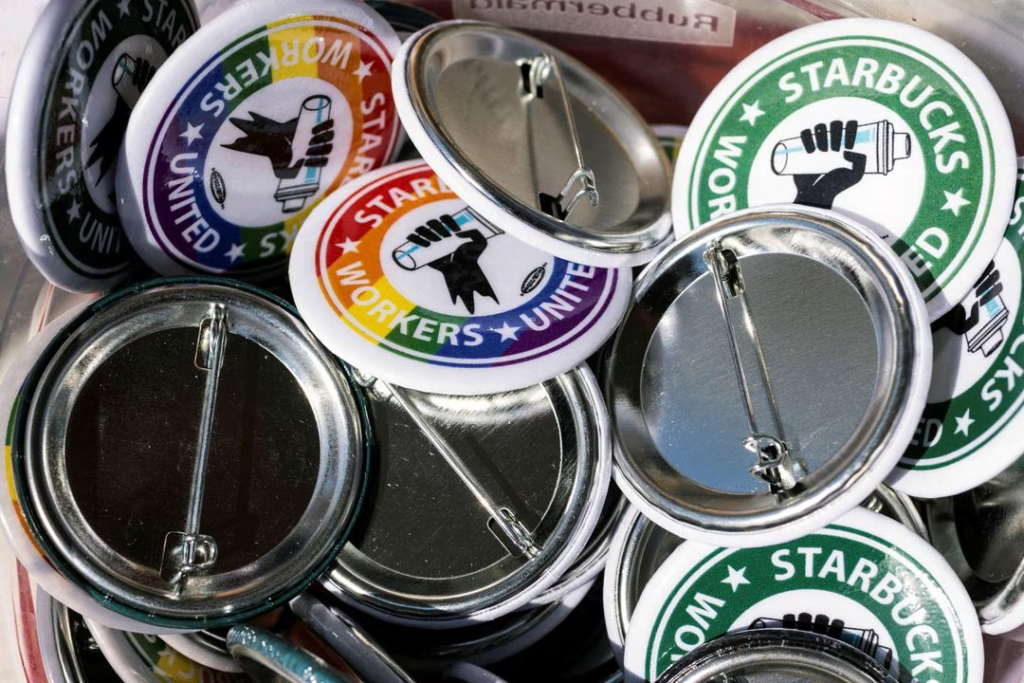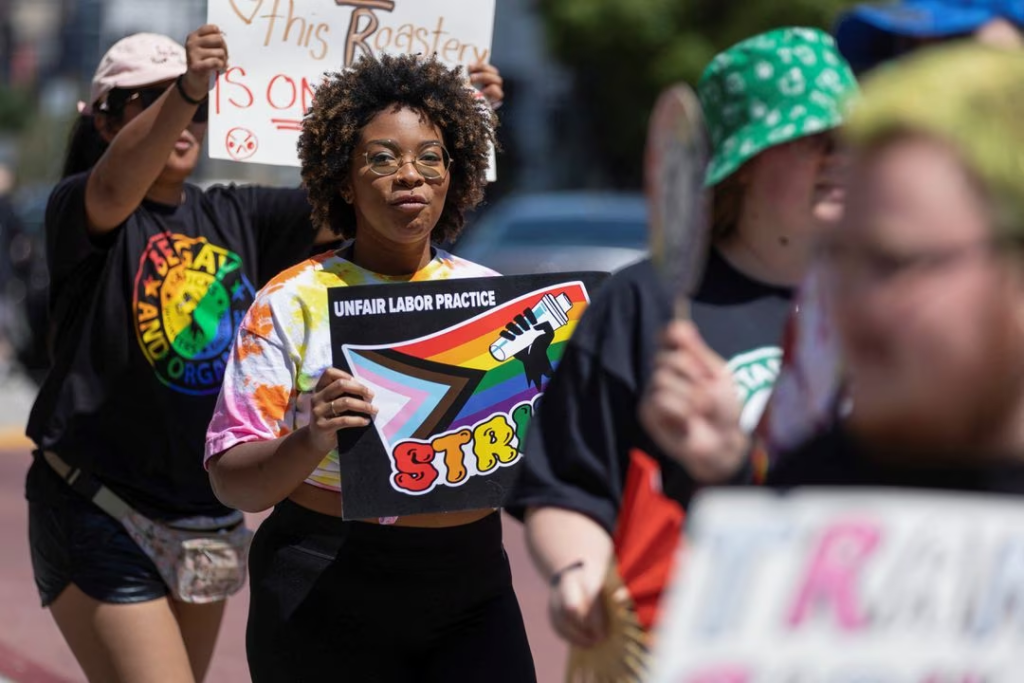In a significant labor movement within the coffee giant, Starbucks, more than 3,000 workers across over 150 stores in the United States are set to embark on a week-long strike, according to the Starbucks Workers United union. The strike not only highlights the company’s alleged ban on Pride Month decorations at certain cafes but also serves as a call for improved pay and benefits through fair labor contracts. As the company’s newly unionized cafes have yet to reach any collective bargaining agreements, the strike carries added significance.
Amid a broader market downturn, Starbucks saw its shares decline by over 2.5% in response to the upcoming strike. The timing of the walkout coincides with the forthcoming Pride Month celebrations, where Pride Parades are scheduled to take place in major cities across the United States, including New York, San Francisco, Seattle, and Chicago.

The union claims that numerous Starbucks locations had prevented employees from displaying Pride Month flags and decorations or had even removed them. However, Starbucks refuted these allegations, denouncing them as “false information.” The company emphasized that no policy changes had been made regarding the matter, reiterating its encouragement for store managers to celebrate Pride Month while adhering to store safety guidelines.
Backlash and Shareholder Concerns
This dispute is not an isolated incident within the retail sector, as several U.S. brands have faced backlash from conservative groups regarding the display of LGBTQ+ merchandise. Additionally, these companies have drawn criticism from gay rights organizations, accusing them of inadequate support for the LGBTQ+ community after yielding to pressure from conservatives.

For instance, retail giant Target faced confrontations between shoppers and store workers, leading to the removal of some Pride merchandise from its shelves. Anheuser-Busch InBev, the parent company of Bud Light beer, witnessed a notable decline in sales due to their attempts to market to the transgender community. These incidents have not gone unnoticed by shareholders, including New York State Comptroller Thomas DiNapoli, who manages the state’s public pension funds. DiNapoli sent letters to Starbucks, Target, and over 50 other invested companies, seeking explanations on their management of corporate risks related to attacks on LGBTQ+ equality and their support for LGBTQ+ employees.
Striving for Inclusivity Amid Challenges
In response to DiNapoli’s inquiries, Starbucks promptly reaffirmed its commitment to inclusivity, tracing its inclusive policies back to 1988 when it began offering full health benefits to same-sex domestic partners. However, alongside the Pride decor dispute, Starbucks also faces numerous complaints at the National Labor Relations Board, alleging illegal practices such as firing union supporters and temporarily closing stores during labor campaigns. Since late 2021, workers at more than 300 U.S. stores have voted to unionize.
The nationwide strike, aptly named “Strike with Pride”, is being initiated at the company’s flagship Seattle Roastery. Starbucks Workers United intends to leverage this strike as a catalyst for change, raising awareness of workers’ demands for fair labor contracts and advocating for the rights and representation of LGBTQ+ employees within the company.
By standing in solidarity and organizing collective action during Pride Month, Starbucks workers are drawing attention not only to their specific grievances but also to the broader challenges faced by marginalized communities in the workplace. As the strike unfolds, it underscores the ongoing struggle for equitable treatment and acceptance within corporate environments.

